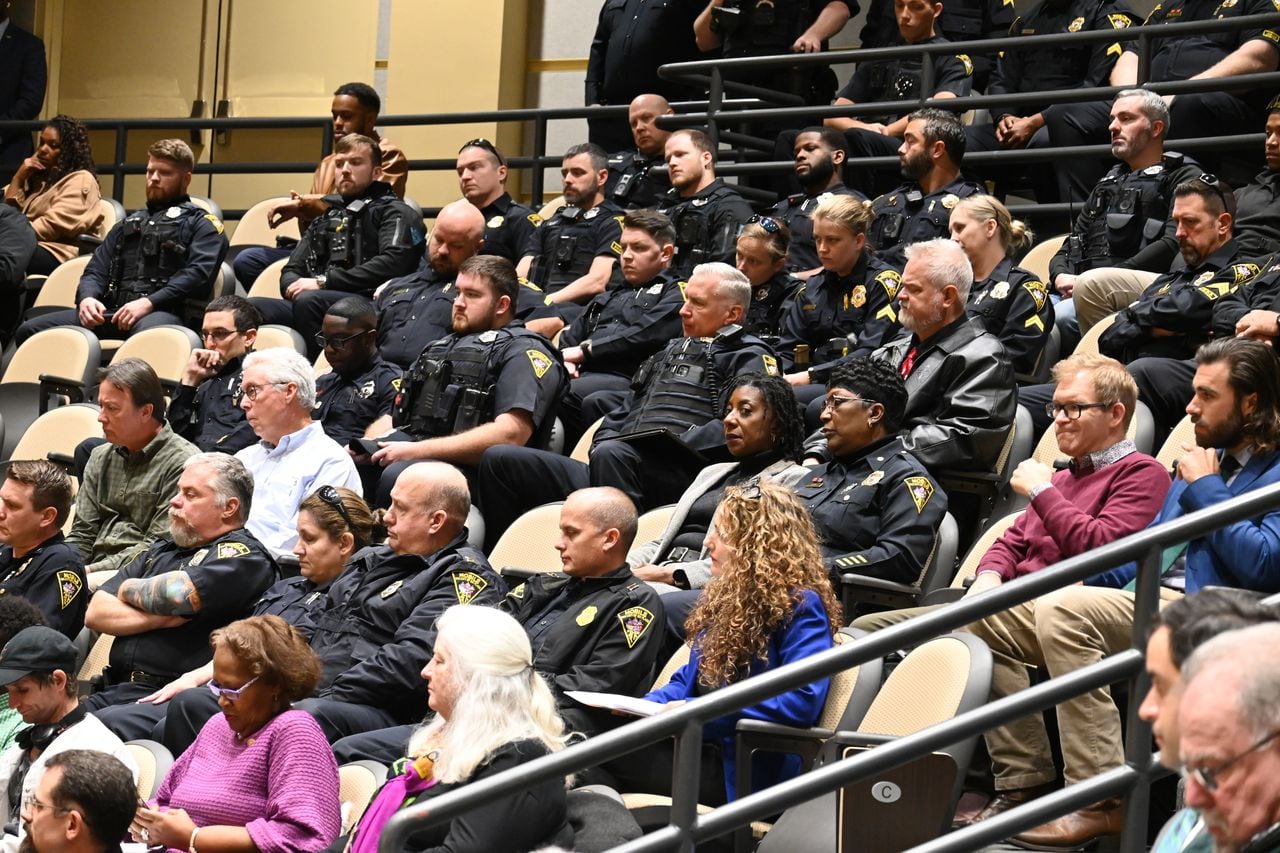Alabama Attorney General says he would do âright thingâ for Mobile in review of ordinances if asked
Alabama Attorney General Steve Marshall declined to speculate Thursday on his “political aspirations,” and said that his office would “continue to do the right thing” by evaluating a Mobile city ordinance if asked to do so.
His comments come less than a month after some Mobile council members expressed concerns over forwarding two ordinances related to policing to Marshall’s office based on political concerns.
Marshall, who is term-limited and whose name has been floated as a possible candidate for governor or other higher offices, has long been a staunch “tough-on-crime” candidate and pro-police. He was in Mobile on Thursday to commemorate Kimberly Sickafoose, a police officer with the Alabama State Port Authority who died while on duty on May 11.
“I have a job to do as Attorney General to be able to evaluate and analyze the law and to the extent opinions need to be offered and base it on their circumstances,” Marshall said during a visit to the International Trade Center in downtown Mobile. “To the extend someone wants to speculate on a political career, frankly I am not going to comment on that. I have seven years on the job and a record that speaks of us doing the right thing and we’ll continue to do the right thing if asked by Mobile.”
The two ordinances will likely resurface during the council’s next meeting, said Councilman Cory Penn.
“We’re still trying to see what is the best route,” said Penn, one of the council members who expressed doubts about sending the two ordinances – one related to the release of police-worn body camera footage, and the other prohibiting pre-dawn raids and no-knock warrants – to the Attorney General for an opinion.
A large contingent of Mobile police attend the Mobile City Council meeting on Tuesday, Dec. 12, 2023, at Government Plaza in Mobile, Ala.John Sharp/[email protected]
The council voted 5-2 on Dec. 12 to postpone for 30 days a decision on what to do with the two separate ordinances. The 30-days expires on Friday.
The two proposed ordinances, which do not go above and beyond established Alabama state law or existing city policy, do the following:
- Ban no-knock search warrants and pre-dawn raids, something that has been in place since Mayor Sandy Stimpson halted them in November following a tragic pre-dawn raid in which a 16-year-old was shot and killed. The teenager was not the person police were looking for. The mayor’s ban does include limited exceptions.
- A requirement for authorities who deny the release of police-worn body cam footage to provide a legal reason for the denial under Alabama state law. A similar provision has been in place through a new state law that was enacted on Sept. 1, 2023.
The ordinances were the result of complaints about policing late last year.
Chief of Staff James Barber said it’s up to the council to decide if the ordinances should be forwarded to Marshall for consideration. The mayor’s staff determined in December that they could be in violation of the 1985 Zoghby Act, the Alabama state law that established Mobile’s current form of government, and recommend the council consider forwarding to the Attorney General.
At issue is whether the city council, as a legislative body, can vote on ordinances regulating policing.
Marshall said he has not seen a request and declined to comment “specifically on what the city is being asked to do.”
Councilman Ben Reynolds said he likes the idea of getting an opinion from the state’s top prosecutor before moving forward on approving two controversial ordinances.
“There were some comments about passing an ordinance might be a misdemeanor,” Reynolds said. “I’d like to know that for sure. I know our attorney is looking into it. But it doesn’t hurt to give it to the Attorney General (for consideration).”
Council members have said the only way to resolve the concerns on whether they have oversight to regulate policing is through litigation.
“Maybe that is where we end up,” Reynolds said. “But as of right now, we have conflicting opinions (from the council and the city’s administration). I don’t think it hurts (to get Marshall to review the matter).”
